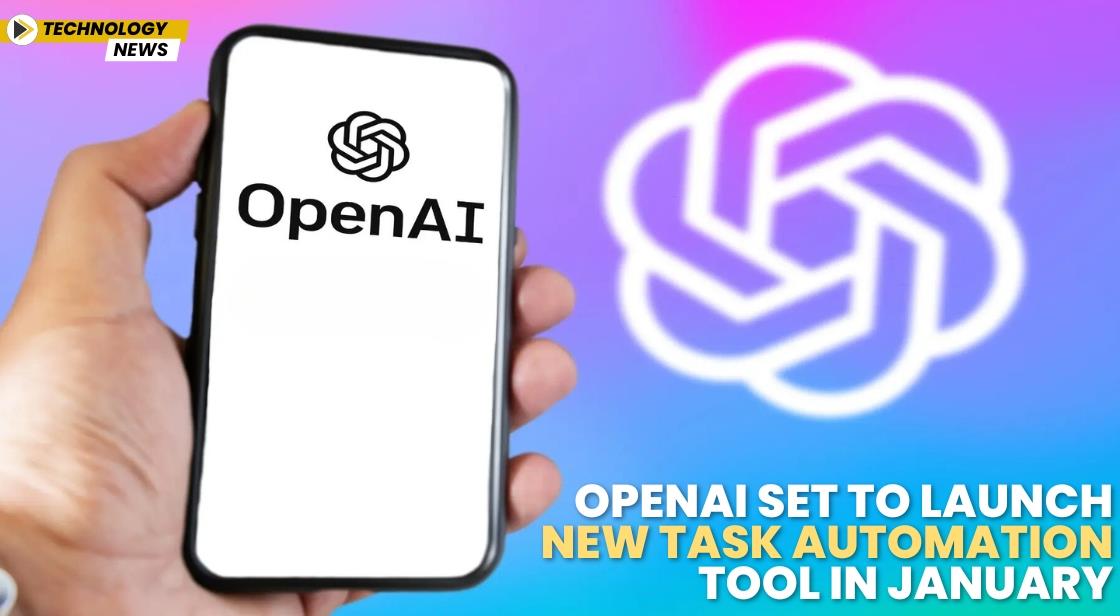OpenAI Set to Launch New Task Automation Tool in January

News Synopsis
OpenAI is developing a new AI-powered tool, codenamed “Operator,” designed to automate complex, multi-step tasks such as booking flights, conducting research, and even writing code. According to a report by Bloomberg, OpenAI plans to release a research preview of Operator in January 2025.
The tool is intended to streamline labor-intensive tasks and will be accessible through OpenAI’s application programming interface (API) for developers. This upcoming launch is part of a broader shift in the tech industry toward "AI agents" that can perform tasks with minimal human oversight.
Expanding AI Capabilities for Autonomous Task Management
The development of AI agents capable of handling complex processes marks a significant trend within the tech industry. As OpenAI prepares to launch Operator, other tech giants have been working on similar AI agent technologies. For example, Anthropic recently introduced an agent capable of monitoring user activities and performing various tasks autonomously on a computer.
Microsoft, a primary investor in OpenAI, has also introduced a set of agent tools focused on automating workplace activities, such as email management and record-keeping, to improve productivity. The goal of these agents is to facilitate seamless, hands-free assistance in both personal and professional settings.
Google’s Jarvis AI Leaks Ahead of Launch
Google is also gearing up to release its own AI agent, codenamed “Jarvis,” with capabilities that overlap with those of OpenAI’s Operator. Last week, a prototype of Jarvis was reportedly leaked via the Chrome Web Store, revealing its potential functions. According to a description on the leaked page, Jarvis is a “helpful companion that surfs the web for you,” suggesting that it will be able to independently perform tasks like booking tickets, grocery shopping, and conducting online research.
This indicates that Google’s Jarvis will function as an autonomous digital assistant capable of executing various tasks with limited human guidance. While Google has not formally confirmed a launch date, rumors indicate Jarvis may be available as early as December 2024, potentially giving Google a lead in the release of AI agent technology.
Sam Altman on the Future of Agent-Based AI Systems
In a recent Reddit “Ask Me Anything” session, OpenAI CEO Sam Altman discussed the transformative potential of agent-based AI. Altman noted that while AI models will continue to improve, the next major breakthrough will likely come from the development of autonomous AI agents. These agentic systems are designed to handle a range of tasks independently, representing a new frontier in AI capability. Altman highlighted that this shift toward agentic AI could be more impactful than simply refining existing models, as it opens up new possibilities for fully autonomous task management.
OpenAI’s Upcoming Flagship Model, Orion
Beyond Operator, OpenAI is also reportedly working on a new flagship AI model, expected to launch by the end of this year. Codenamed “Orion,” this model is anticipated to be a significant evolution from GPT-4, focusing on improved reasoning, problem-solving, and natural language processing.
Orion is designed to address common AI challenges, such as reducing the incidence of hallucinations, by leveraging advanced synthetic data generated through a pre-model, codenamed “Strawberry” (also known as o1). This pre-model is intended to enhance the quality of Orion’s training data, paving the way for more accurate and reliable AI responses.
Competition Heats Up Between Google and OpenAI
As both OpenAI and Google work to advance AI agent technology, the competition in the field is intensifying. If Google launches Jarvis before OpenAI’s January 2025 release of Operator, it may gain an advantage in the AI agent market. Despite OpenAI’s recent introduction of ChatGPT’s search capabilities, Google’s prompt actions suggest it still holds a strong position in AI development. This competition highlights the growing focus among tech giants on releasing advanced AI tools that prioritize user autonomy, efficiency, and convenience.
The Next Phase of AI Development: Moving Beyond Models
With the upcoming releases of Operator, Jarvis, and potentially other agent-based systems, the tech industry is entering a new phase of AI development. Rather than focusing solely on building more sophisticated models, companies are shifting towards creating tools that integrate AI more seamlessly into daily life. This change points to an emerging future where autonomous agents, rather than just large language models, become the core of AI-driven assistance.
You May Like









